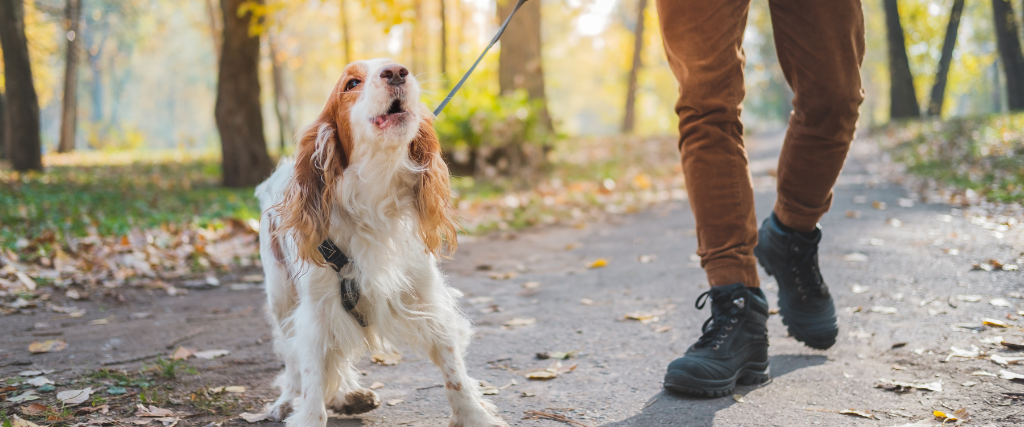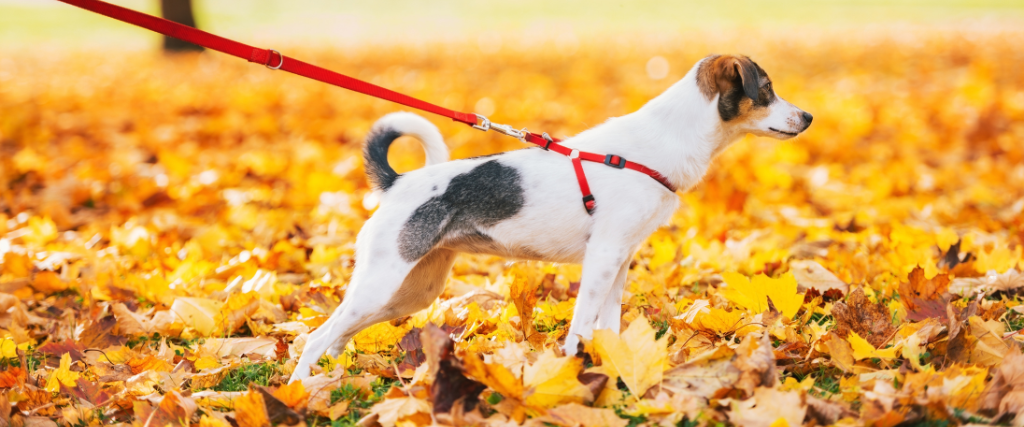Dogs are awesome. Some of their behaviors aren't always so great, though. From incessant begging to jumping up on people to begging for food, there are plenty of ways that even the most loveable dog can be pretty annoying. Dogs develop obnoxious behaviors and strange habits for countless reasons, and even the most loving pet parents often become frustrated and unsure of how to put a stop to them.
Fortunately, we have some good news for you.
Occasional mess and noise are unavoidable when you share your home with a dog, but you don't have to live with inappropriate behavior. With proper training and, sometimes, appropriate veterinary care, you can break bad habits and improve your canine companion's behavior. As veterinarians, we're passionate about strengthening the human-animal bond and want to help pets and their parents enjoy happy, peaceful lives together. That's why we decided to share our top tips on solving some of the most common (and irritating) dog behaviors. Keep reading to uncover the solutions you need.

1. Barking
Dogs bark because, well, they're dogs. Barking is a natural behavior, but it often becomes excessive. And when that happens, even the cutest pup often becomes a nuisance to their owners -- and the entire neighborhood.
Training your dog not to ever bark isn't feasible, and it's not fair to expect them to live their life in silence. However, appropriate training reduces barking and helps dogs understand when barking is acceptable and when it isn't.
Yelling at your dog or punishing them for being noisy won't solve the problem. Instead, you need to figure out why they are barking in the first place. Once you know the cause of their incessant barking, you can either remove the trigger or teach them a better (and quieter) means of communication.
The Humane Society of the United States recommends ignoring your pup if they frequently bark for attention. You may also need to remove whatever triggers your dog's barking or desensitize them to it. For example, you may need to keep the curtains closed if your furry friend barks at everyone who walks down your street. Or, if they bark every time they see another dog, you may need to better socialize them to desensitize them to that particular trigger.
Never punish your dog when they are barking. Instead, praise them when they are quiet and behaving appropriately. It may take a while to curb their barking, but with consistent positive reinforcement-based training, your dog will eventually learn that staying quiet is more rewarding than barking.
2. Jumping Up
Most of the time, dogs jump on people due to excitement. Despite what certain trainers have to say, it's usually not a matter of the dog trying to assert dominance. They're usually just happy to see their owners (and their other favorite people). And since dogs sniff each other's faces when meeting, it only makes sense that they'd jump up for face-to-face hellos with people, too. Unfortunately, it's annoying. It can even be a dangerous one if your dog knocks over a small child or elderly person when jumping.
If your dog jumps up on people, consider how you greet them when you return home. You might not mind when they jump up for a hug, and you may even inadvertently reward the behavior by showering your dog with affection. Dogs don't understand that behavior that's perfectly acceptable to you could be problematic to other people, though.
Break this bad habit by refusing to give your dog attention until all four feet are on the floor. During training, praise your dog immediately when their front feet hit the floor, and stop if they jump up again. Eventually, they will learn that keeping their feet on the ground is the best way to get the attention they crave.

3. Begging for Food
Chances are, your dog acts like they are starving minutes after finishing a meal. If they are following you around giving you puppy dog eyes in hopes of getting more food, that is pretty typical. It's a natural behavior that generally isn't too annoying and doesn't require fixing. But if your four-legged family begs for scraps at the table, you have a bigger -- and more frustrating -- problem on your hands. Fortunately, there are a few things you can do to overcome this all-too-common issue.
The simplest solution is to limit your dog's access to your dining area. Keep them in their crate or another room while you are eating, so they can't beg. Teaching them to lie down while you are eating could help, too. You may also want to consider feeding your dog when you eat. When they're occupied with their food, they're less likely to bug you for yours.
However, to fully curb this problematic behavior, you need to teach your dog that begging doesn't work. No matter how much they stare at you with those big eyes and try to convince you that they are starving, don't fall for it. Sharing a bite or two of your meal rewards negative behavior and tells your dog that begging works. And when they know it works, they'll keep doing it. Begging is annoying, but ignoring this behavior is more effective in the long run than rewarding it.
4. Leash Pulling
While some have more intense physical activity needs than others, all dogs require regular walks. When it feels more like your dog is walking you instead of you walking them, though, those walks may become your least favorite part of the day. Leash pulling is a common issue, but it's one that you can overcome. There's no need to resign yourself to a life of your dog dragging you through the neighborhood every time you go for a walk.
Your first instinct may be to punish your dog when they are pulling on their leash. You might want to yell at them, jerk the leash or buy a pronged collar to keep them from pulling, but these are not good solutions. Instead, you need to use positive reinforcement to show your furry friend that walking next to you on a loose leash is rewarding.
Offer up lots of praise and treats when your dog walks nicely by your side rather than trying to drag you down the street instead of punishing them for misbehaving. When they realize that good things happen when they stay close to you, they'll be less likely to pull. And once your dog has mastered walking next to you on a loose leash, you can practice teaching them to pay attention and obey commands while walking.
Closing Thoughts
Don't let your dog's annoying behaviors get you down. Instead, learn to overcome them. With basic training and lots of positive reinforcement, you can break your canine companion's bad habits and make living with them the joyous and rewarding experience you've always longed for.
Consider reaching out to schedule an appointment with your local primary care veterinarian if training doesn't seem to be working or you think there may be an underlying medical problem causing undesirable behavior. As your dog's vet, they will assess their health and make recommendations to train a happy, well-behaved dog.
